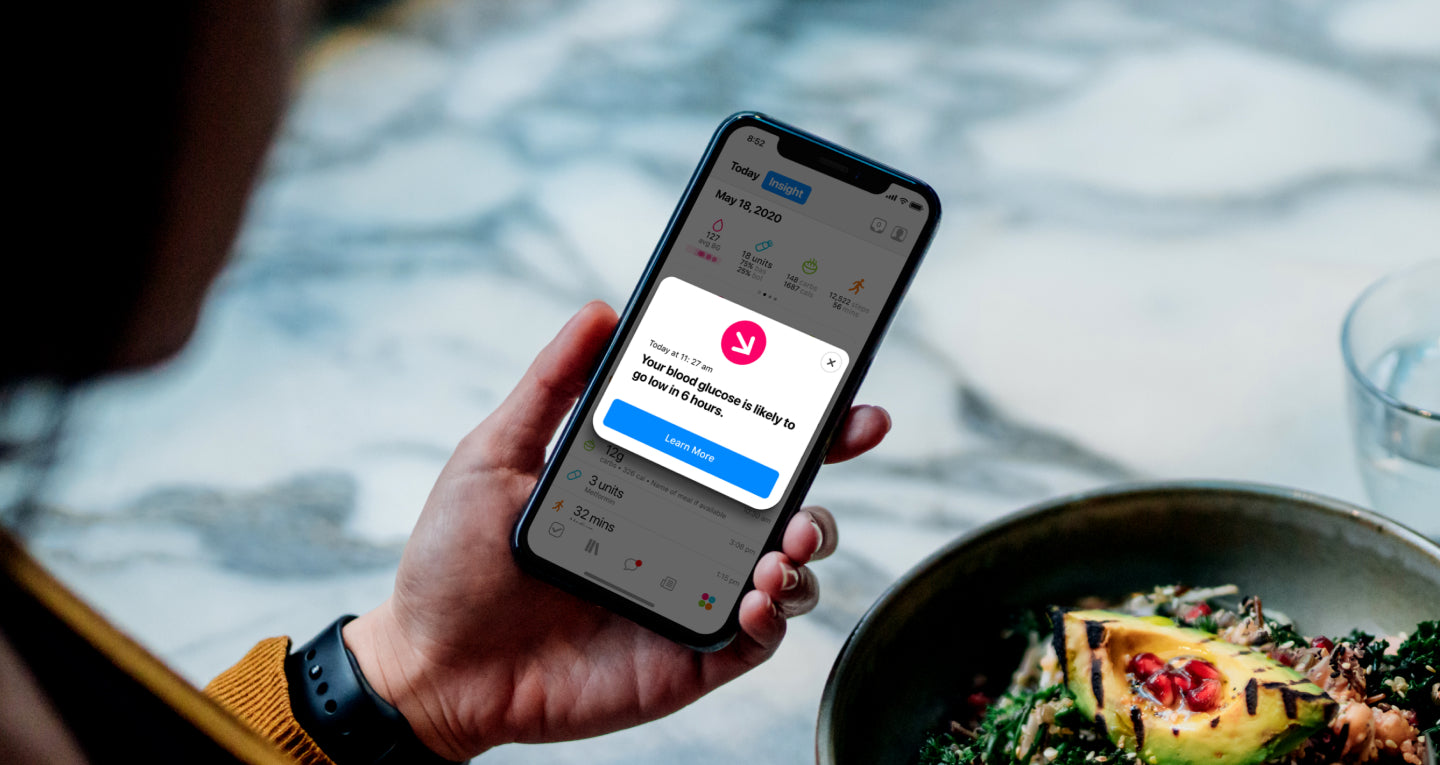Think back to the last time you set a health goal. Maybe you were trying to eat more fresh, whole foods, or keep your blood sugar in range during a stressful week. Either way, did you find yourself seeking out advice and insight from people who’d been in your shoes before? Whether it’s a friend whose experience is relatable, or even a stranger’s health journey that you start following online, learning how others handle the same situation you’re encountering can be immensely helpful.
Now, imagine you could learn about billions—yes, literally billions—of different scenarios of those health journeys. Imagine you could see ahead of time that taking on that extra project at work will make you feel anxious and overwhelmed, which will leave you more likely to pick up a quick processed snack over a fresher, more nourishing one. How much more equipped would you be to reach your goals, not to mention avoid a few pitfalls along the way?
Of course, it would be a futile task for the average person to interpret (let alone sift through) billions of scenarios. But machine learning can do it in a matter of moments.
Machine Learning Highlights What We Have In Common
In the simplest terms, machine learning gives computers the ability to interpret data with human-like perspectives—for instance, pattern recognition. You can thank machine learning for the recommendations you get on streaming services such as Netflix and Spotify, and even the search results you get on Google.
Using machine learning in the context of precision health, on the other hand, can help us uncover patterns in experiences, from symptoms and struggles to solutions and explanations.
Think about it this way: Over 400 million people around the world have diabetes, and even more live with a heart condition. Not everyone’s experience with these conditions looks the same, but if you’re logging your health data in an app such as One Drop—which uses machine learning algorithms that are now powered by more than 30 billion data points—we have a much better chance at pinpointing which health journeys do resemble yours.
“We’re all different, but we’re more alike than different,” explains Dan Goldner, SVP of Data Science at One Drop. Machine learning is a way for us to easily find the people who are in similar circumstances as you—whether you’re managing high blood pressure or keeping an eye on your blood sugar. The more data (read: health experiences) that machine learning models have to work with, the more likely they are to spot the circumstances that most resemble yours, including the most common patterns in those circumstances, says Goldner.
“If we only have a million data points, we might not find anybody who’s like you, right?” he explains. But if we have tens of billions of data points, there are way more scenarios that we can reference. “That’s what artificial intelligence does,” continues Goldner. “It organizes all of that information so we can find times and places when similar things have been happening to similar people.”
How Machine Learning Helps Us Find Cause and Effect
Once we’ve identified certain trends in your health, how do we use that knowledge to help you make better decisions in the future?
First, it’s important that we know about more than just health outcomes, explains Goldner. We need to know about the habits that contributed to those outcomes.
For example, let’s say you and your partner like to go for a long walk every night after dinner, but you recently stopped because your ankle’s been bothering you. Suddenly, you notice that your blood sugar has been much higher than usual in the mornings, even though you’ve changed little to nothing about your diet or the rest of your routine. Maybe you’d put two and two together and realize that your nightly walks were doing more for your blood sugar than you thought. But you’d probably be more likely to spot the connection if you had access to your activity stats and your blood sugar levels all in one place.
The only way to connect those dots is to have not just a lot of data, but also a lot of different types of data, from activity and food habits to heart rate, blood sugar, and blood pressure, explains Goldner. One Drop, for instance, can be linked with your Fitbit, Google Fit, Apple Watch, and Dexcom, among other devices and tools, to help you get a holistic picture of your health and understand what factors influence it most.
“That’s what’s going to allow us to predict what’s going to happen, to understand why, and to give the kind of actionable advice, guidance, and education that’s really going to help you get better,” says Goldner.
When You Win, We All Win
The beauty of machine learning models in precision health is that they’re not just helping you learn about your well-being and how to proactively manage it; they’re helping everyone who shares that information with those models.
“We’re learning from the collective experience of all of our members,” Goldner says of One Drop’s machine learning models. Just as you’re discovering new things about your health from what others have been through, others are learning from what you’ve encountered as well.
At their core, these machine learning models are built on a foundation of empathy—the ability to understand another person’s perspective, including their lived experiences and the elements that got them there.
So, the next time you feel a little lost in your health journey, consider downloading the One Drop app, where you can log your health data in one place, find trends in what works versus what doesn’t, and gather insights that are shaped by over 30 billion experiences from people just like you.


